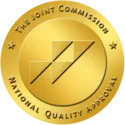Anger and addiction often go hand in hand, with one feeding into the other. When someone is angry, they might turn to substances for relief, which can make their anger worse in the long run.
But there’s hope: specialized anger and addiction treatment can break this harmful cycle. People can learn how to manage their anger and overcome addiction for good.
What is Anger?
 Anger is a complex and powerful emotion characterized by irritation, frustration, or hostility in response to perceived threats, injustices, or obstacles. It can manifest both physically and psychologically, often leading to an increased heart rate, elevated blood pressure, and tense muscles. Psychologically, anger can cloud judgment, impair reasoning, and lead to impulsive or aggressive behavior.
Anger is a complex and powerful emotion characterized by irritation, frustration, or hostility in response to perceived threats, injustices, or obstacles. It can manifest both physically and psychologically, often leading to an increased heart rate, elevated blood pressure, and tense muscles. Psychologically, anger can cloud judgment, impair reasoning, and lead to impulsive or aggressive behavior.
At its core, anger is a natural response to situations that challenge one’s sense of control or well-being. It can arise from various sources, including perceived injustices, personal grievances, or unmet expectations. While anger is not inherently negative, how it is expressed and managed can significantly impact individuals and their relationships.
In the context of addiction, effectively addressing anger as part of treatment requires tackling both root causes and addictive behaviors. This comprehensive approach acknowledges the interconnectedness of anger and addiction, offering individuals thorough support throughout their recovery process.
How Does Anger Affect the Brain and Body?
Anger can have profound effects on both the brain and the body. When experiencing anger, the brain’s amygdala (which is responsible for processing emotions) triggers the release of stress hormones like adrenaline and cortisol. This initiates the body’s “fight or flight” response, leading to physiological changes such as increased heart rate, elevated blood pressure, and heightened muscle tension.
Repeated or prolonged anger can have detrimental effects on the brain, including impairments in cognitive function and memory. Chronic anger has been linked to an increased risk of mental health disorders such as depression disorders, as well as physical health issues such as heart disease and weakened immune function.
Unresolved anger can contribute to the development or exacerbation of addictive behaviors, as individuals may turn to substances or other maladaptive coping mechanisms to manage their emotions. This cycle can perpetuate a harmful pattern, creating a vicious cycle that can be challenging to break without proper support and an intervention guide.
What are the Signs and Symptoms of Signs of Anger?
Signs and symptoms of anger can vary from person to person. But some common indicators include:
- Clenched fists or jaw
- Increased heart rate
- Elevated blood pressure
- Pacing or restlessness
- Muscle tension
- Shaking or trembling
- Aggressive gestures or postures
- Yelling or shouting
- Verbal aggression (such as insults or threats)
- Impulsive actions
- Withdrawal or silent treatment
- Breaking objects or hitting things
- Feeling irritable or frustrated
- Sudden mood swings
- Feeling overwhelmed or out of control
- Difficulty concentrating
- Feeling resentful or bitter
- Blaming others for one’s problems
- Racing or repetitive thoughts
- Catastrophizing or exaggerating negative events
- Difficulty reasoning or problem-solving
- Tunnel vision, focusing only on the source of anger
- Difficulty seeing alternative perspectives
- Sweating
- Flushing of the face or neck
- Headaches or migraines
- Stomach discomfort or digestive issues
- Fatigue or exhaustion after an outburst
Recognizing these signs and symptoms can help individuals identify when they’re experiencing anger and addiction. They can then take steps to manage it effectively before it escalates into harmful behavior.
How Does Anger Development Unfold in Addiction?
The process of anger development in addiction is complex and multifaceted, influenced by various internal and external factors. Understanding this process can help individuals recognize and effectively manage their anger in healthy ways.
Similar to non-addicted individuals, trigger events serve as the catalyst for anger in those struggling with addiction. These triggers can include stressors, cravings, withdrawal symptoms, or situations that threaten habits or lifestyles influenced by their substance use.
Individuals with addiction often experience heightened emotional vulnerability due to the neurochemical changes caused by substance abuse. This can lead to increased sensitivity to triggers and a lower threshold for experiencing anger.
Addiction can distort cognitive processes, leading individuals to perceive situations in a more negative or threatening light. This cognitive distortion can exacerbate feelings of anger and frustration, even in response to relatively minor events.
Anger in addiction may escalate more rapidly and with more intensity compared to non-addicted individuals. This escalation can be fueled by a combination of neurobiological factors, including altered brain chemistry and impaired impulse control.
Individuals may turn to substance use as a maladaptive coping mechanism to deal with anger and other negative emotions. This can create a cycle of anger-triggering substance use, which in turn exacerbates anger and perpetuates addiction.
Anger related to addiction often spills over into interpersonal relationships, leading to conflicts with family members, friends, or coworkers. These conflicts can further fuel feelings of anger and contribute to social isolation and withdrawal.
Anger in addiction is often accompanied by feelings of shame, guilt, and self-loathing, especially when individuals recognize the harm their addiction is causing to themselves and others. These negative emotions can perpetuate the cycle of addiction by driving further substance use as a means of escape or self-medication. This is why relapse prevention techniques are so key to sustained healing from addiction.
Anger can serve as a barrier to seeking and engaging in addiction treatment. Individuals may resist acknowledging or addressing their anger, viewing it as a justified response to their circumstances or as an integral part of their identity.
What Are The Three Types Of Anger?
Many people may not be aware, but experts categorize anger into three distinct types. Recognizing these variations and understanding their nuances is crucial for individuals grappling with their anger issues. If you find yourself struggling and acknowledging the need for change, seeking anger management counseling can be incredibly beneficial.
This type of anger involves expressing hostility or resentment indirectly, often through subtle behaviors or actions. Rather than openly addressing the source of their anger, individuals may resort to passive-aggressive tactics such as sarcasm, silent treatment, or procrastination. For example, instead of confronting someone directly about a problem, they might make snide remarks or deliberately avoid completing tasks assigned by that person. Passive-aggressive anger can be challenging to identify and address, as it may not always be immediately apparent.
Openly aggressive anger is characterized by overt and hostile expressions of anger. Individuals who exhibit open aggression may yell, shout, or engage in physical aggression toward others or objects. This type of anger often involves a loss of control and can lead to verbal or physical confrontations. For example, someone experiencing open aggression might engage in shouting matches, slam doors, or even engage in physical fights. While open aggression may provide a temporary release for the individual, it can also escalate conflicts and lead to negative consequences.
Assertive anger involves expressing anger directly and respectfully. Rather than resorting to passive-aggressive behavior or open aggression, individuals communicate their feelings and needs clearly and assertively. Assertive anger allows individuals to express themselves without violating the rights of others or resorting to aggression. For example, someone experiencing assertive anger might calmly explain how they feel, set boundaries, and seek constructive solutions to resolve conflicts. Assertive anger is often seen as a healthier and more effective way of managing anger, as it promotes open communication and mutual respect in relationships.
The Relationship Between Anger And Addiction
It’s important to express anger openly and honestly, conveying it in a manner that is understandable to the other people involved. Holding back anger can only lead to more destructive behavior down the line, whether directed at yourself or others.
Anger and addiction are directly related in that not dealing with anger (and other strong emotions) may create a desire to dampen the emotion itself. Indulging in an addictive substance may make a big or uncomfortable emotion feel more manageable. You may feel more able to express anger while under the influence of a substance. Addressing and confronting the sources of repressed anger may end up being a key factor in addressing addiction issues.
Anger Management at Eagle Creek Can Help

Are you struggling to control your anger? Don’t let it hold you back any longer. Anger and Addiction Treatment at Eagle Creek offers professional support and guidance to help you effectively manage and overcome your anger issues, as well as any associated addiction challenges. Our experienced counselors provide personalized strategies tailored to your needs, empowering you to regain control of your emotions and improve your relationships.
Contact us to learn more about our anger management and addiction treatment programs and start your journey toward positive change.

Clinical Director
Kendall Maloof is the clinical director at Eagle Creek Ranch Recovery. She is a licensed marriage and family therapist and has held multiple leadership roles before settling here at Eagle Creek Ranch Recovery. Kendall received her master’s degree in marriage and family therapy from the Chicago School of Professional Psychology in 2016. Her career in mental and behavioral health began in 2014 when she took up internships in both the nonprofit and for profit sectors. She interned at multiple reputable companies, such as The Living Success Center and 449 Recovery in California.
In 2019, Kendall became the clinical director of Sunsets Recovery for Woman, a dual diagnosis program in southern California. Kendall is a natural leader. She has an incredible ability to problem solve and stay calm in any situation. Kendall never fails to show up when she is needed, and her calm demeanor makes her team and clients feel at ease. Eagle Creek Ranch Recovery is proud to have Kendall as our clinical director.



